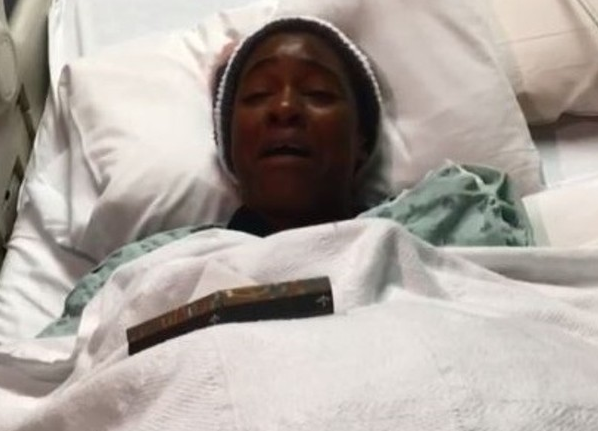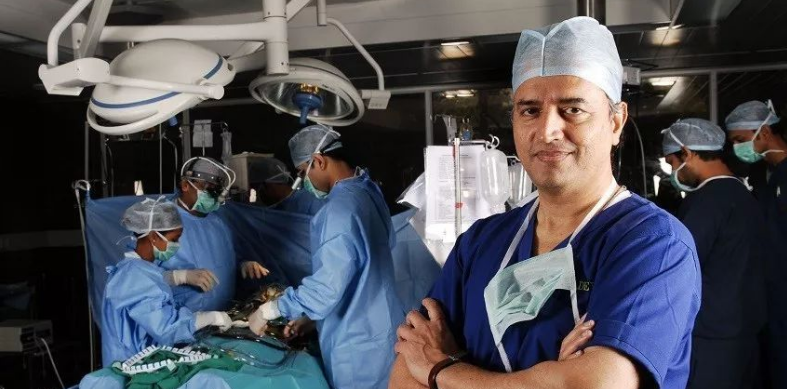Three years ago, Abidemi Ogbonna from Lagos, Nigeria, was plagued by severe pain in his back and decided to go to the nearby Apollo hospital. She thought it was just a small problem, so she was shocked when the doctor told her she needed a kidney transplant as soon as possible.
The doctor told her that the local surgery could not be completed. For her, the success rate of going to India for surgery is greatest. Ms. Ogbona’s family belonged to the middle class and could afford the cost, so they immediately began to apply for a visa.
The Apollo Hospital in Nigeria and the sister hospital in India confirmed the date of surgery, helped Ms. Ogbona get a visa, and booked her flight and accommodation in India. In addition to payment, nothing else is worried about her. As soon as the payment was successful, she immediately boarded the earliest flight and, accompanied by her mother, embarked on a journey to save her life.
Ms. Ogbona’s experience is typical of hundreds of Africans seeking medical services abroad.
Among the Africans who go overseas for treatment, India is increasingly favored by everyone. This is because India's medical expenses are more affordable, the equipment is more advanced, and the doctor's medical skills are also very clever. Ms. Ogbona can also choose to go to the United States or the United Kingdom, but the medical treatments in the United Kingdom and the United States are extremely expensive and it is very difficult to apply for visas in these countries. India is different, applying for a visa can be approved within a week, and medical care is relatively cheap.
Medical status in Africa
The Global Health Workers Alliance aims to find solutions for countries that lack a sound health system. In its 2015 report, it noted that sub-Saharan Africa is facing serious shortages of professional health care providers and that people in need of treatment do not receive adequate medical care. This is a disturbing news for Africa, because Africa has a huge burden of disease, and the prevalence of several infectious diseases (malaria, tuberculosis and HIV/AIDS) ranks first in the world. According to the British Medical Journal, "Africa's disease burden accounts for 24% of the world's total, but the number of doctors only accounts for 2% of the world's, and medical expenses are less than 1%."
The health care system in many countries in Africa lacks financial support. For example, Nigeria, although it is one of the richest countries in Africa, has a national income of 594.257 trillion US dollars (before the recent currency depreciation), its medical expenditure only accounts for 4.6%.
Ajjampur Ghanshyam, the Indian High Commissioner in Nigeria, pointed out that in 2015, about 40,000 Nigerians had been to India, half of which were for medical reasons, such as transplant surgery, joint replacement surgery or Dental surgery, etc.
But why do Africans go to India to seek medical services?

Why is India?
Since the 1990s, India has become a leading country in the global "medical travel", and India is very proud of it. “Medical travel” refers to a tourist activity in which people leave their permanent residence and travel to other countries for the purpose of obtaining medical services.
India has a high level of doctors and advanced equipment, and treatments are recognized by the World Health Organization (WHO) and the US Food and Drug Administration. In addition to access to quality medical services provided by hospitals and doctors, another reason patients choose to go to India is that it costs much less than the United States and the United States.
For example, a kidney transplant in India would cost about $13,000, while in the US it would cost as much as $300,000.

Dr. Dheeraj Bojwani, director of Forerunners Healthcare Consultants, said: “The cost of a kidney transplant between relatives is between $13,000 and $16,000.” Pioneer Medical Consultants One of India's leading providers of medical value, it works with the best hospitals and surgeons in India.
Dr. Bogwani told the African Revitalization magazine via email that a $13,000 kidney transplant package includes preoperative medical examination, preoperative consultation, postoperative services, cost of surgery and surgeons, anesthesiologist's cost, and medicine. fee.
The package also includes the patient's hospitalization fee (a deluxe ward with air conditioning, TV, internet and telephone), meals during the hospital stay, airport transfer and a boarding fee for a escort.
Many African patients tend to choose Apollo Hospital, based in Chennai, Tamil Nadu, India. With more than 60 branches across India, the hospital has its own health insurance program and has established partnerships with 10 international insurance companies to help patients reimburse medical expenses.
As for drug charges, the price of Indian generic drugs is only a fraction of that of Western countries. For example, Cipla, a multinational pharmaceutical company in India, has reduced the price of HIV/AIDS antiretroviral drugs to an average of less than one dollar a day, and the cost of using antiretroviral drugs has therefore been 1.2 per year. Ten thousand dollars fell to less than 365 dollars.
In addition, the Indian government has introduced incentives to attract foreign patients. These policies make full use of India's “exotic style”. Some travel packages also allow patients to bring a escort and visit landmarks such as the Taj Mahal at a discounted price.
For Africans who speak English like Ms. Ogbona, language is not an obstacle, because English is the lingua franca of India. For those who don't want to have surgery and want to use other therapies, India is the home of alternative therapies. For example, Ayurveda is a herbal medicine that treats diseases through herbs, breathing exercises, diet changes, meditation and stretching exercises. .
Follow-up care and sustainability
Ms. Ogbona recently returned to her home in Lagos, where she accepted a telephone interview with Africa Revitalization. Indian doctors advised her to go to Apollo Hospital in Nigeria for follow-up care, but she was concerned that Lagos doctors might not be able to provide her with the full range of post-operative care she needed because of the lack of medical equipment. For kidney transplant patients who have relapsed from an old disease and may need to be admitted to the hospital within a few minutes, it is almost impossible to carry out follow-up care in India because it takes time to plan the trip (it takes at least five days to get a visa) and money is required to purchase the ticket.
In order to solve these problems, the Indian government has cooperated with the African Union to develop the Focus Africa Programme and establish the Pan African e-Network to ensure continuous care for patients.
The “Focus on Africa Program” was launched in 2002 to promote trade between India and Egypt, Nigeria, Kenya, South Africa and other African countries on affordable medicines (and other commodities), making it easier for Africans to access them.
The Pan-African Electronic Network promotes distance education and telemedicine to ensure that African patients receiving treatment in India have ongoing care. Distance education provides courses or videos to people through the Internet. Telemedicine mainly diagnoses and provides medical services from distant places through remote communication devices. The system connects African teaching hospitals to sister hospitals in India, allowing patients to access medical services through teaching hospitals.
Indian medical services companies have also gradually established joint venture projects with African hospitals. Currently, they have invested in Egypt, Ethiopia, Kenya, Mauritius and Mozambique.
South Africa
At the same time, South Africa continues to make progress in medical services. Data show that in 2012, about 300,000 to 350,000 people from all over Africa traveled to South Africa to seek medical services. In addition to flying time shorter than going to India, South Africa also uses hunting and spa projects to promote and attract tourists.
Among the reasons why African tourists seek medical services in South Africa, saving money is secondary, mainly because of the advanced infrastructure and medical technology of South Africa, as well as doctors who meet international standards.
Due to the weakness of the Rand, cosmetic surgery in South Africa is a more affordable option for visitors from Europe, the Americas and Asia. For example, breast enhancement surgery in the UK costs $8,000 and in South Africa it costs $3,600. This data comes from Medical Tourism SA, which provides medical travelers with a full range of medical services.
Artificial fertilization surgery to help women become pregnant, Americans need to spend $12,400 in their home country, and only one-third of this price in South Africa.
For this reason, in the past three years, the number of African medical visitors to South Africa has increased by 54%, reaching 10,477 in 2015, Seye Abimbola on a blog of the African Development Bank. Write it like this.
Looking to the future
People are rushing around to improve products and medical tourism will continue to develop, but at the same time, solving problems in the African health care system will reduce medical tourism expenditures, and the savings can be used to subsidize or subsidize health insurance for the poor. .
Looking ahead, Africa should establish regional and national medical centers, develop pharmaceutical markets, produce and sell generic drugs, and reduce dependence on foreign medical care. Despite the many benefits that foreign medical care can bring, many critics believe that this is not sustainable and may not necessarily help African countries.

